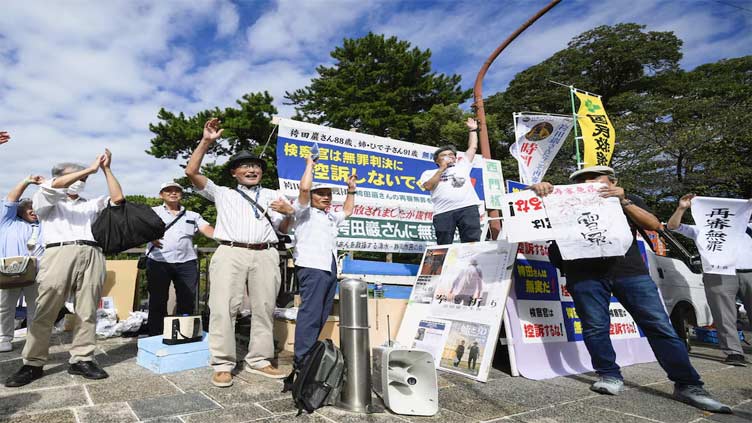Japanese man acquitted of 1966 murders after 45 years on death row

World
The Shizuoka district court cleared 88-year-old Iwao Hakamada
TOKYO (Reuters) - A Japanese man said to have spent the world's longest time on death row was acquitted of murder on Thursday, his legal team said, ending his family's search for justice after a wrongful conviction for crimes committed nearly 60 years ago.
The Shizuoka district court cleared Iwao Hakamada, 88, in a retrial of the murders of four people in the central Japanese region in 1966.
It was sweet to hear the words "not guilty" in the courtroom, said Hideko Hakamada, who has battled for decades to clear her younger brother's name.
"When I heard that, I was so moved and happy, I couldn't stop crying," she told a televised briefing.
Hakamada spent 45 years on death row before a court ordered his release and a retrial in 2014 amid doubts about the evidence on which his conviction was based.
The former boxer, who has lived with his sister since his release, had been accused of stabbing to death his former boss and family before burning down their home.
Though he briefly admitted to the killings, he retracted the confession and pleaded innocent during his trial, but was nevertheless sentenced to death in 1968, a penalty upheld by Japan's Supreme Court in 1980.
Norimichi Kumamoto, one of the Shizuoka court's three judges who had sentenced Hakamada to death, petitioned the Supreme Court for a retrial in 2008, but was rejected.
Hakamada's lawyers had argued that DNA tests on bloodstained clothing said to belong to their client showed the blood was not his.

Rights group Amnesty International hailed the exoneration as a "pivotal moment for justice" and urged Japan to scrap the death penalty.
"After enduring almost half a century of wrongful imprisonment and a further 10 years waiting for his retrial, this verdict is an important recognition of the profound injustice he endured for most of his life," Amnesty said.
"It ends an inspiring fight to clear his name," it added in a statement.
The government's top spokesperson, Chief Cabinet Secretary Yoshimasa Hayashi, declined comment on individual cases, but acknowledged the Shizuoka court's ruling.


